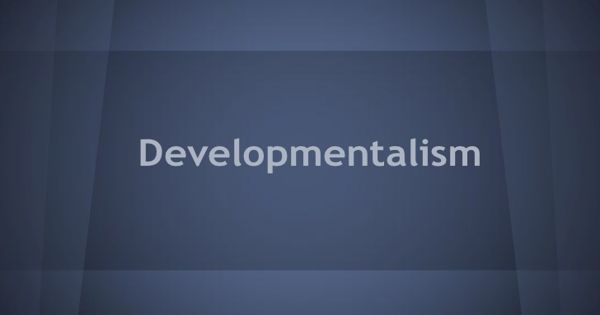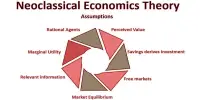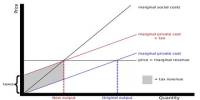Developmentalism is an approach to national economic development that emphasizes the intervention of the state. It is an economic theory that states that the best way for less developed economies to developing is through fostering a strong and varied internal market and imposing high tariffs on imported goods. Economic liberalism gives full primacy to the market, while developmentalism combines state and market in a more balanced way.
Developmentalism is any of various philosophical or theological doctrines or schools of thought concerned with development; especially those which regard the nature of something as a result of gradual development, rather than being innate or predetermined.
Capitalist societies will be either developmental or liberal depending on the way they deploy their major institutions, namely the state and the market. Developmentalism is a cross-disciplinary school of thought that gave way to an ideology of development as the key strategy towards economic prosperity. Developmentalism and economic liberalism are not only ways of coordinating capitalism but also ideologies, each ideological camp asserting the superiority of its form of capitalism. The school of thought was, in part, a reaction to the United States’ efforts to oppose national independence movements throughout Asia and Africa, which is framed as a communist. The social cohesiveness of a nation depends on how much its citizens:
- Share a common history and common interests;
- Agree on the political objectives that have become relatively consensual in modern societies and the individual obligations involved;
- Are able to make compromises among themselves, that is, to engage in politics, without which a common life is impossible.
Developmentalism in the international economic context can be understood as consisting of a set of ideas that converge to place economic development at the center of political endeavors and institutions and also as a means through which to establish legitimacy in the political sphere. The developmental state bases its ideology and legitimacy on an ability to get out of the traditional poverty trap and promote sustained economic development.
Current applications of developmentalism stem largely from post‐World War II aid projects inspired by modernization theories and targeting the “underdevelopment” of newly decolonized states. Developmentalists believe that national autonomy for ‘Third World’ countries can be achieved and maintained through the utilization of external resources by those countries in a capitalist system. The market-based version of the developmental state largely depends on private capital and ownership.
Developmentalism has been criticized for having a linear view of progress and for neglecting deeply rooted power inequities in the world system that is the root of underdevelopment and dependency. Using this theory, economic development was framed by modern-day Western criteria: economic success is gauged in terms of capitalistic notions of what it means for a country to become developed, autonomous, and legitimate.
Information Source:
















